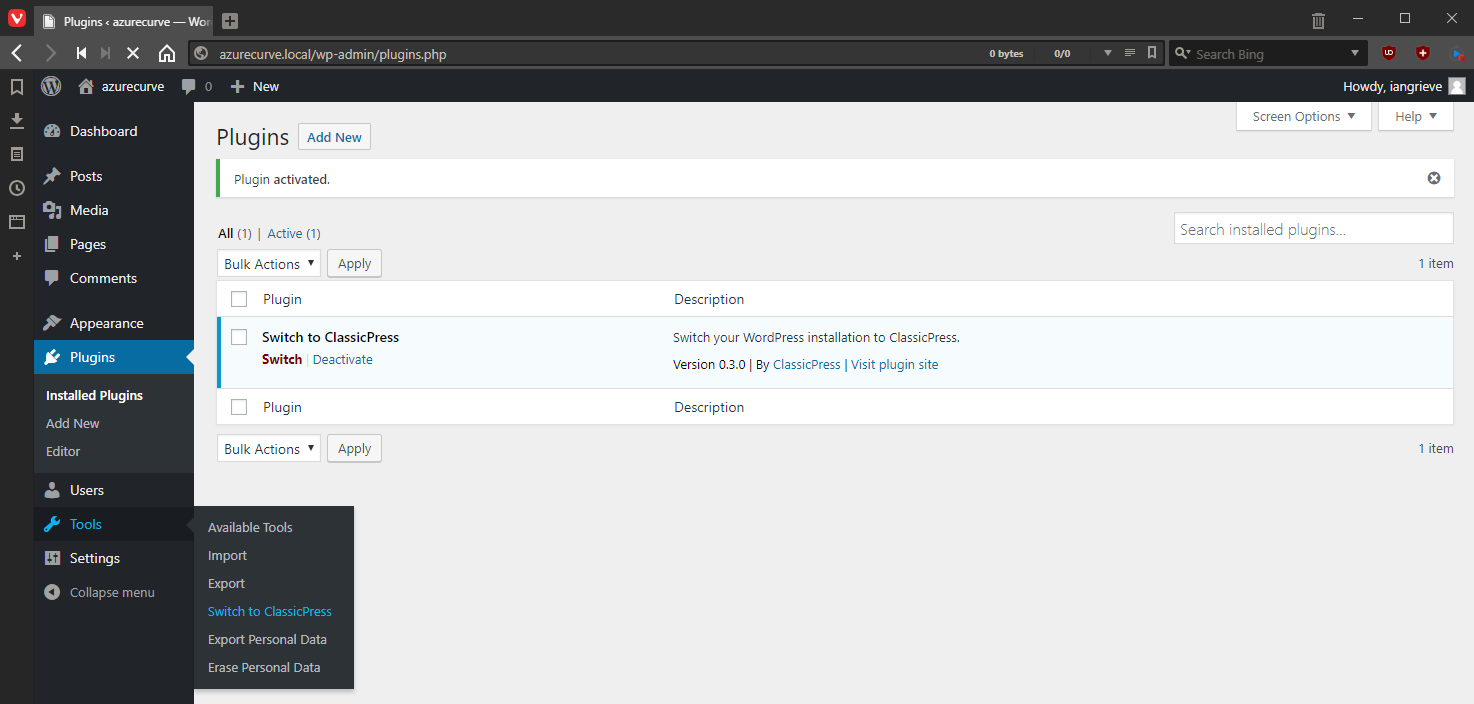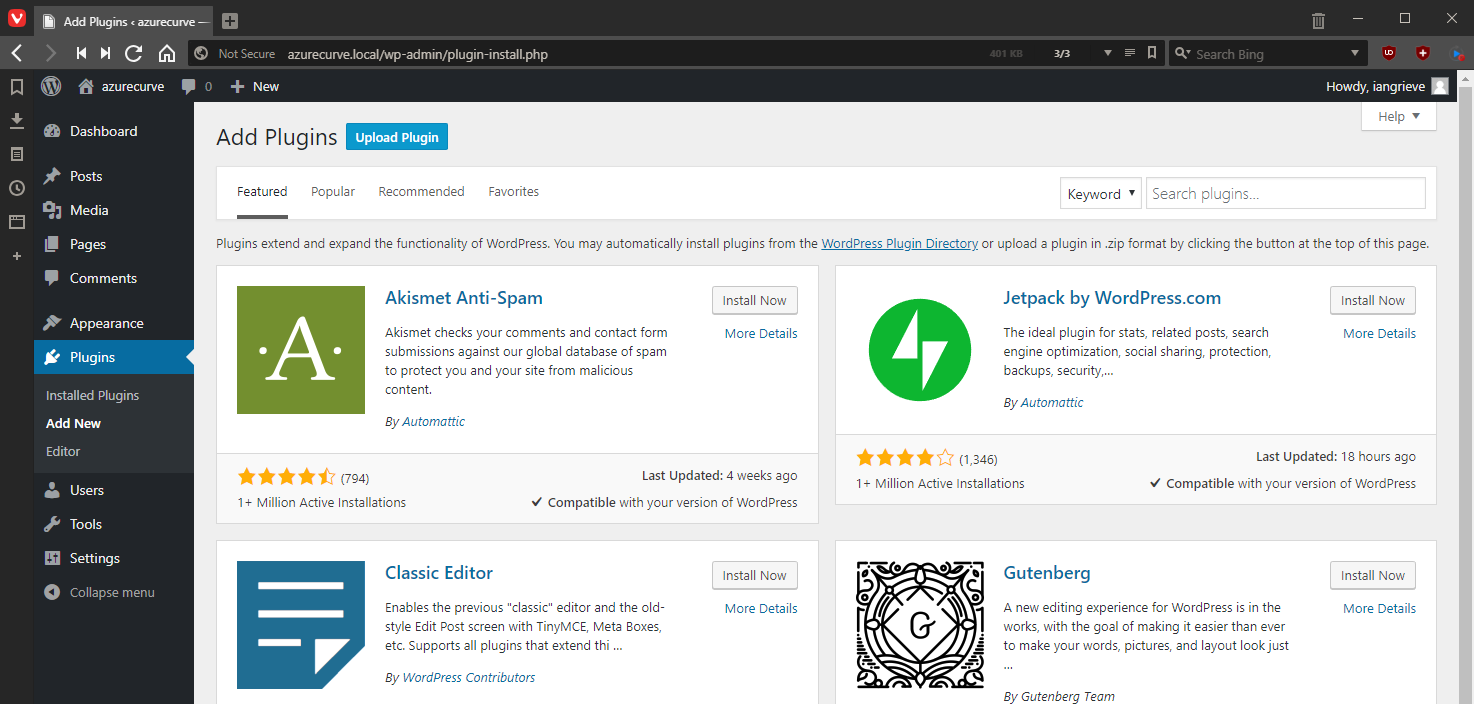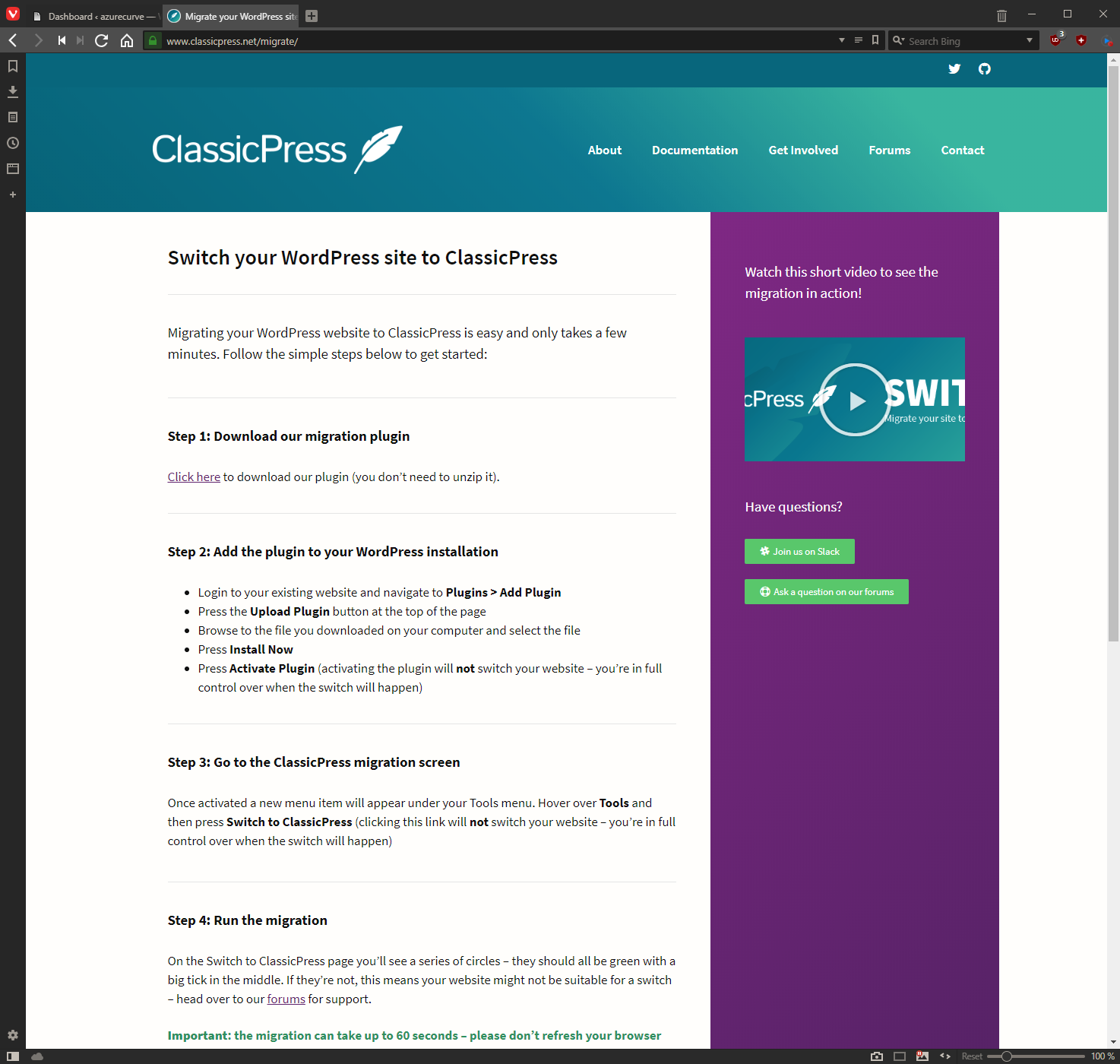 ClassicPress is a modified and enhanced version of WordPress (without Gutenberg) that aims to serve the business website market; the concept of this fork was launched by Scott Bowler. I’m not going to try to speak for Scott, so I’ll link to the original post he did on why ClassicPress was created .
ClassicPress is a modified and enhanced version of WordPress (without Gutenberg) that aims to serve the business website market; the concept of this fork was launched by Scott Bowler. I’m not going to try to speak for Scott, so I’ll link to the original post he did on why ClassicPress was created .
The Mission statement from ClassicPress is:
1. If it isn’t broken, we won’t fix it
The original idea behind ClassicPress was to provide a version of WordPress without Gutenberg, a drag and drop page builder, which was slated to become part of the core WordPress code from version 5.
It is our firm belief that the original publishing experience was (and still is) a tried and tested solution complimented by a wide array of plugins to extend its functionality. In other words, it wasn’t broken, so it didn’t need to be fixed.
This philosophy is central to ClassicPress. We won’t change things for change sake — just because something has been around for a while, it doesn’t mean it’s broken (in fact, it’s probably the optimal solution).
2. Business-focused CMS
The main target market of ClassicPress are businesses and as such we will move to being a full CMS. Blogs can be a part of an CMS, the other way around is often much more difficult.
The features that we will implement are all focused around offering one of our 3 key takeaways:
Powerful. Versatile. Predictable.
3. We will facilitate democratic discussion and decision making
In order for decisions to made by the community it is essential that we provide a platform that makes it easy for every member of the community to share ideas, debate, vote and give feedback without censorship.
We will ensure the platforms and systems are in place and maintained to make this a reality.
4. We will make people’s lives better
There are many people involved in an open source project such as ClassicPress. Programmers, designers, marketers, businesses and website visitors to name a few.
It is our mission to ensure that we make the lives of the people who use ClassicPress better. For example, for programmers we will campaign for ideas that make programming more efficient, less prone to bugs and faster to do. For end users we might suggest a project to make websites load faster.
5. We will invest in the future of ClassicPress
ClassicPress will be registered as a not-for-profit company (a Limited by Guarantee company based in the United Kingdom).
We will be transparent about any money raised (or spent) and encourage the community to vote on how this money will be best used. It is our mission to ensure that we re-invest into the ClassicPress platform and any supporting systems.
In the long-term this might, for example, include hiring of a core team of developers to work on ideas voted for by the community.
I’ve joined the forums and slack channel for ClassicPress and have been both keeping a general eye on things as well as doing some beta testing for various aspects of the project. I’ve liked what I have seen so far and am seriously interested in moving my sites over to it when the first version is released (currently it is in beta).
For me the key item is that it does not contain Gutenberg (they’re open to a Gutenberg plugin that people can choose to use) and it works fine with all of my plugins (both the ones I have created as well as the ones from other developers (such as Contact Form 7).
While ClassicPress is still in beta, James Nylen, the development team lead, has given the green light for the announcement that it is safe to use in a live environment as there are no open bugs on our GitHub repository.
If they’re saying it is ready, but still in beta you might be wondering why?
The answer is quite simple; there are a few items which still need to be completed before the official version 1 launch (none of which will have a negative impact on sites using it):
- There are a few dashboard areas which still need converting to being ClassicPress focused rather than WordPress focused (for example, they’re adding a Petitions dashboard widget)
- There is still the occasional mention of WordPress instead of ClassicPress, such as in the README file
- Localisation is incomplete
Full details of the announcement are here.
I’m in the process of building a new plugin demo site on ClassicPress and will be looking to migrate all of my sites over as soon as I can; in the mean time I will be sticking with WordPress 4.9.8 (plus any 4.9 security updates) as I don’t find Gutenberg to be useful (and would go so far as to say it is would have a major detriment on my blogging if i did upgrade and try to use Gutenberg.
For me, ClassicPress is the future and I am participating in the new community where I can (mainly in beta testing of the various aspects).
 This post is part of a series on migrating to ClassicPress from WordPress.
This post is part of a series on migrating to ClassicPress from WordPress.








